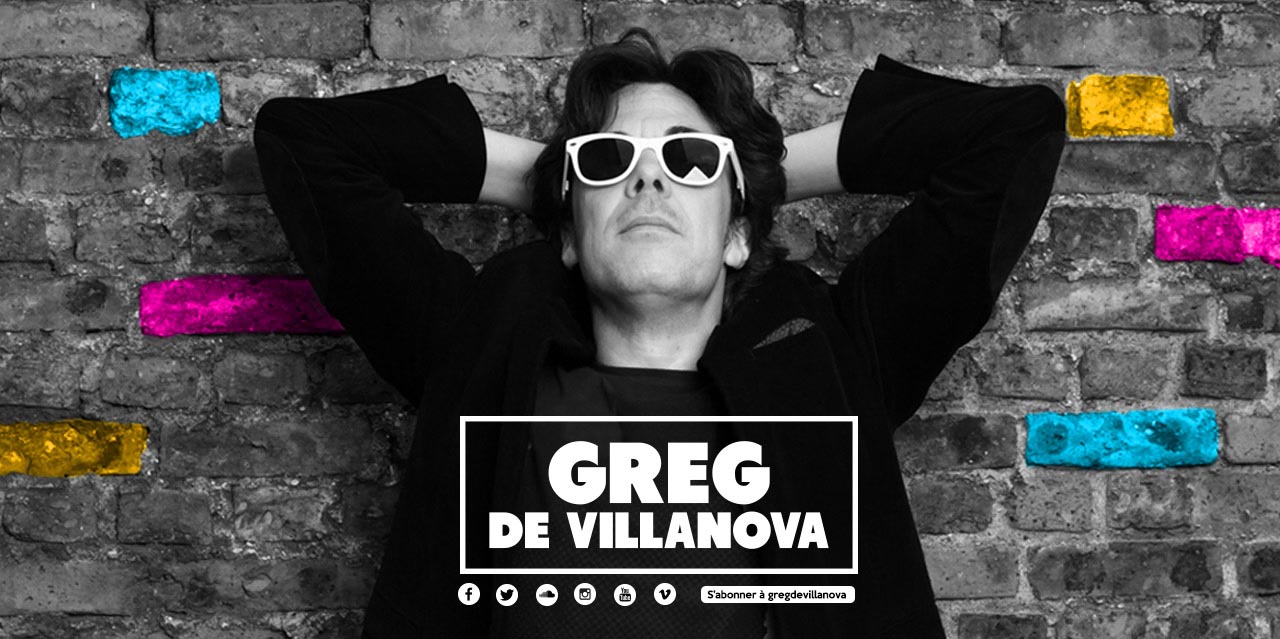Greg de Villanova hears the link between American Funk and African pop, between tropical bass and salsa, between disco and dancehall reggae. It’s a dancefloor-packing instinct that has garnered the Paris-based DJ gigs in a dozen countries, including the US, Canada, Brazil, and countries across Africa and Europe.
De Villanova’s thoughtful yet funky sets show: You can think globally and still bring the party. You can bust through transatlantic genre barriers and mix old and new. “I play brand new tracks, I play decades-old vinyl,” Greg explains. “I travel a lot and buy whatever I can. There is so much music you’ll never find anywhere else, that’s only distributed locally, not online, be it on LP or CD. You can put it all together, you just need to have the knowledge, the sense of history, the ear.” |
On his travels, he’s acquired a deep knowledge of everything from salsa to funk, from bossa or jazz to hip hop, from Afrobeat to deep house. He became one of the driving forces behind the rediscovery of 60s and 70s African artists, like the now well-known Orchestre Baobab. Genre- and era-hopping comes second nature to de Villanova, who has long had eclectic tastes. Growing up in Paris with a Brazilian father, Greg heard soul, R&B, and classic Brazilian songs from childhood. As a teenager, he sought out obscure hip hop, swapping tapes with friends, and got hooked on the thrill of the hunt. The hip-hop of the era turned de Villanova on to other music from America: funk, disco, r&b, soul, house. He chased down samples and found himself stumbling into a musical passion that spanned the Atlantic and club music history. De Villanova’s debut as a DJ speaks volumes about his roots and his approach. One Friday night in Salvador, Bahia, de Villanova toted a bunch of the records he had recently snatched up, the collection he had already managed to amass in a few short weeks since his arrival in the provincial but creatively inclined Brazilian city. He took them to a friend’s party and spun his first professional DJ set.
That night, he discovered how his many musical loves could come together, in high-energy sets with just the right element of surprise. “I began putting salsa, say, with funk and reggae and afrobeat in Bahia,” Greg recalls. “For the next 3 years, living in Salvador, I was DJing. And every day of the week, I was going through the city, digging for old vinyl in all these experimental styles with small, really local audiences.” The intertwining interests—playing music to get people dancing, discovering music by digging up underappreciated releases—led de Villanova to Africa. He wound up Abidjan, Ivory Coast, where he began to learn the ins and outs of searching for music in a place where there is no used vinyl market. He dug up obscure African as well as international recordings popular in Abidjan, from jazz and funk to salsa. De Villanova fell for a Dakar band big from the 70s, Orchestre Baobab, and tracked down the right contact. He reissued Orchestre Baobab’s recordings internationally, one of several key releases that helped open the ears of Western listeners to overlooked tracks of West Africa’s striking 70s funk and rock-inspired scenes.
Greg continues to hunt for music around the world, and he continues to push dancefloor tastes in new directions by sneaking unknown styles into his sets. “You try to trick your listeners in a friendly way,” he smiles. “You play a hit song and then you can play a few obscure tracks, so long as they have that good, sexy, light vibe.” |

